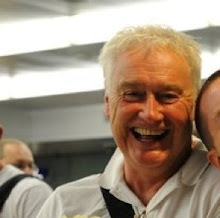written for The Public Reviews - 3 stars

By the time he was my age, Lorenz Hart had been dead ten years and deprived Richard Rodgers of what many musical theatre aficionadoes think was his finest collaborating lyricist. In their twenty year partnership, they created 26 musicals based on a solid belief in the integration of libretto, lyrics and music .
This makes it harder to excise songs from their contexts but Bewitched, Bothered and Bewildered is a good example of the songbook show, prettily staged and the material smartly selected. Editor of Cabaret Scenes magazine Harold Sanditon suggested in the bar that when songs were presented like this you look for more in the way of interpretation, and may not find it here.
Angular, striking, glamorous Valerie Cutko – possibly the possessor of the last trademark beehive in musical London now that Amy’s gone and Mari Wilson has had a bob – opens with My Friend The Night in an expressive rendition of the first of many rarely-performed songs cut from films or from lesser-known musicals.
They’re intertwined with famous standards, and some glass-sharp comic numbers like Laura Armstrong’s To Keep My Love Alive or her excellently-pointed Way Out West … on West End Avenue which show the brilliance of Hart’s internal rhymes and lyric placement. Armstrong also displays one of the most beautiful cadences in the Rodgers canon with He Was Too Good To Me, and blends perfectly with Katie Kerr in Like A Ship Without A Sail.
The harmonies are delicious, and the piano accompaniment by MD David Harvey is excellent but some of the vocal entrances and cutoffs are mistimed.
The real treat is Stephen Ashfield, cruising elegantly through a succession of ballads including a charming Isn’t It Romantic, and partnering Cutko in a moving segue of There’s A Small Hotel and My Romance which seemed to have a tenderly unspoken sub-plot of a failed affair as Cutko’s voice tailed away to silence and Ashfield left the stage.
In an act of vanity casting, director Tim McArthur gives himself Johnny One Note, My Funny Valentine and a tap number, but as Jennifer Reischel pointed out in ‘The Stage’: as a singer, he makes a better director.
It was encouraging to see Jermyn Street so full but post-Ghost it also seems fair to question how much longer inexpensively-staged and heavily-nostalgic musical theatre will attract an audience often referred to as “the greys and the gays”.
The material may be immortal, but this style of production isn’t.








